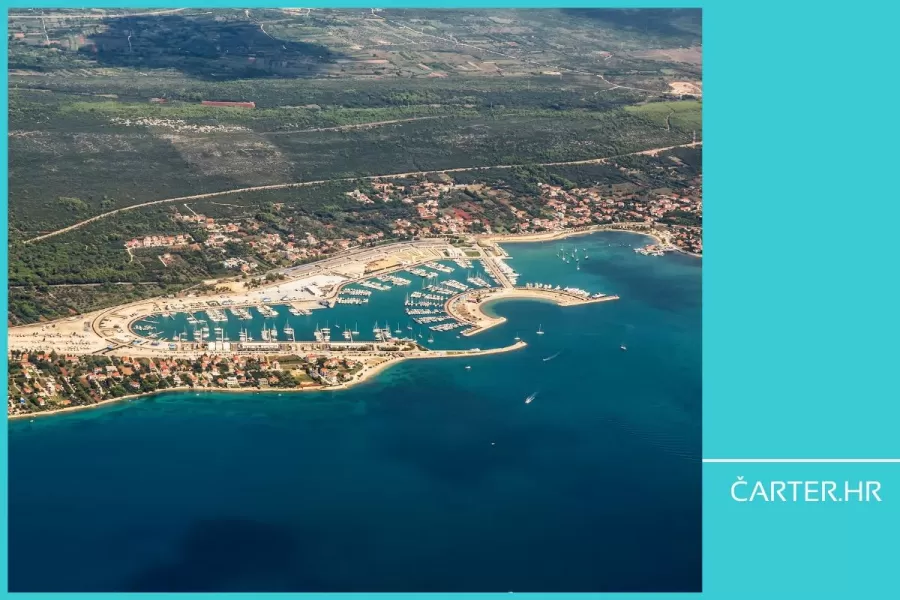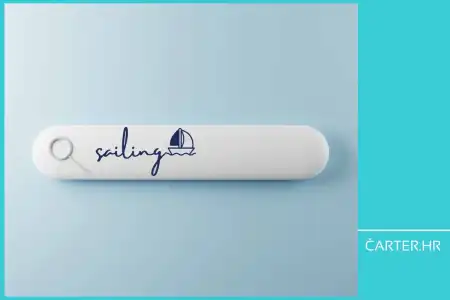
What is the current state of the nautical charter in the Adriatic? It faces numerous challenges, including non-compliance with the rules at sea, problematic relations with marinas, and high costs of moorings. However, at the same time, there is great potential for improvement and development of the industry through solutions in the form of long-term investments.
The season has started, and with it, the vacation of dreams in the most beautiful way possible, namely the one in a nautical charter and on the Adriatic. In addition to beautiful memories, it brought with it the usual folklore, such as disrespecting the right of way, running aground due to not checking the depth, and a bridge like Ždrelac awakens strange urges, such as passing during high tide and whose mast remains solid and in one piece.
These are cases that occur in a certain number, and there will always be a cestain number of them, no matter how many times they are repeated. A man in the sea is a man in the sea, and in fact, no matter how many times that exercise was spent before the start of the summer.
What can be done to make the experience of boaters as pleasant as possible, and for the yacht charter industry to generate income and employ people, and to profile itself additionally with quality - and thus additional income - is to think about whether it is possible to think business-wise not only in the context of this year's earnings but also in the long term.

What is the main obstacle to a further business affirmation of nautical charter?
It is justified to ask the question: apart from the geographical limitation of the dimensions of the Adriatic Sea itself, what is the main obstacle to the further business affirmation of nautical charter into an even more profitable activity?
Neither less nor more than business relations with marinas and the constantly growing fixed costs of marinas and docks that are not accompanied by an adequate increase in the quality of the services provided. We are talking about an increase of 10 to 15% from year to year.
Practically, marinas take advantage of the situation that objectively, approximately 4,000 moorings are still missing for the thing to function, as well as the fact that yacht charter bases need to have a mooring in order to function.
Furthermore, although they enable the marinas to cover fixed costs because they occupy 1/3 of the marina's capacity as users of permanent berths, the yacht charter companies are not rewarded by the marinas for their long-term cooperation, nor are they granted a discount on the amount of capacity in use.
It also means nothing to anyone that they bring guests with a higher paying power who will be happy to spend during their stay by the sea, not only on offshore islands.
Contrary to the logic of the profit of business relations, the annual contract is up to 20% more expensive on average.
Furthermore, an interesting legal issue from the domain of consumer rights and good business practices is that leased berths are charged once more. While sailboats and motor yachts are out, the same pre-paid moorings are most generally used to moor vessels in transit.
What is a possible solution?

The potential transformation of the entire nautical sector
Waiting for the capacity building of an investor is one thing. You would be surprised how many people with funds are looking for an opportunity for something like this. They would be interested in the initiative of interested users who can, for example, be co-borrowers in financing this kind of content.
The second is that individual companies from this segment try to organize and agree with surrounding towns near larger marinas, investments from the domain of public-private partnerships under the system of moorings for the locals, and yacht charter bases for us.
When they see that you are going, they will lower the prices. Because it will hardly attract anyone from Italy, and Greece is also a little too far.
And what can the marinas do? As the prime minister of the Republic of Croatia said at the time of the migrant crisis in 2015, they can "spend a little" to get a lot in the long run.
For example, in the annual price of moorings and maintenance, include one regular out-of-season removal and reduce the cost of removal of the vessel in the event of extraordinary service to 2/3 of the price.
Or, instead, deduct any use of an already paid permanent connection from the price of the paid service.
Even without marketing, word will quickly spread that someone has an ear for a long-term business.
And he doesn't kill a cow for that chop but throws away steaks, rump steaks, forequarters, mulam... You get the point, even if you're a vegetarian.
You will not go to ruin but make up for it through other content.
For example, a man opened a Caffe Cheers pub in Kneževi Vinogradi in Baranja (we don't advertise it, we pay the bill every time) and a pizzeria next to it.
He realized that he needed to prepare the ground for good wineries in that place and the surrounding area for the growing number of tourists, and two bakeries were immediately renovated across the street from him. Consequently, he started organizing parties and concerts of various artists.
If someone can, with all due respect, in Baranja, which is immeasurably less active, adjust the offer and generate tourist arrivals and get on the map of the best pizzerias in Croatia, what else can someone who is given the opportunity to do business on the Adriatic coast?!?
You lose on the bridge - you win on the overpass, but traders still come that way because it's good.
Money attracts money; this is evident not only at the weddings of domestic and foreign business dynasties.

Is it possible to finance the purchase of a vessel that would be used by a natural person?
Due to the coincidence of circumstances in business practice, we received an interesting inquiry about leasing sailboats.
Specifically, it boils down to whether it is possible to finance the purchase of a valuable vessel that would be used by a natural person for their needs but not rented out?
The answer was - no. No leasing company in Europe would finance the purchase of such a vessel to a natural person except as an asset of a company owned by him. Somehow it seems to us neither in Asia nor in America.
The economic reason clearly says that if something can be used as a means of work, generates income and depreciation as an accounting expense, but not really, it can be financed.
When you are not on that ship, why not enjoy notifications about a new booking and that the money has been deposited into the rental account?
Those who need a vessel worth several hundred thousand euros or more just for personal enjoyment do not need a loan or leasing for that.
We mention all of this because you will have similar inquiries from potential partners and clients, regardless of whether you work directly in the nautical charter itself or in an accompanying service. Considering that you want to please a client or business partner, it is logical that you will try to find a solution and spend time and nerves. Now that you know what we have listed here - save yourself the nerves, time and money you lose because you are not doing something more useful.
Or as it would be said in a famous quote - reka' sam ne može (I said - no).
And for everything else related to financing and the like, there are čarter.hr and financiranje.net - let them decide what to do with client inquiries related to everything that is not your domain of business.
Categories of trends
- News
- Sale
- Marketing
- SEO
- Web design
- Social media
- Technology
- Regulations
- Management
- Education
- Finances
- User experience
Newsletter
Sign up for the newsletter and receive the latest trends and tips straight to your inbox




